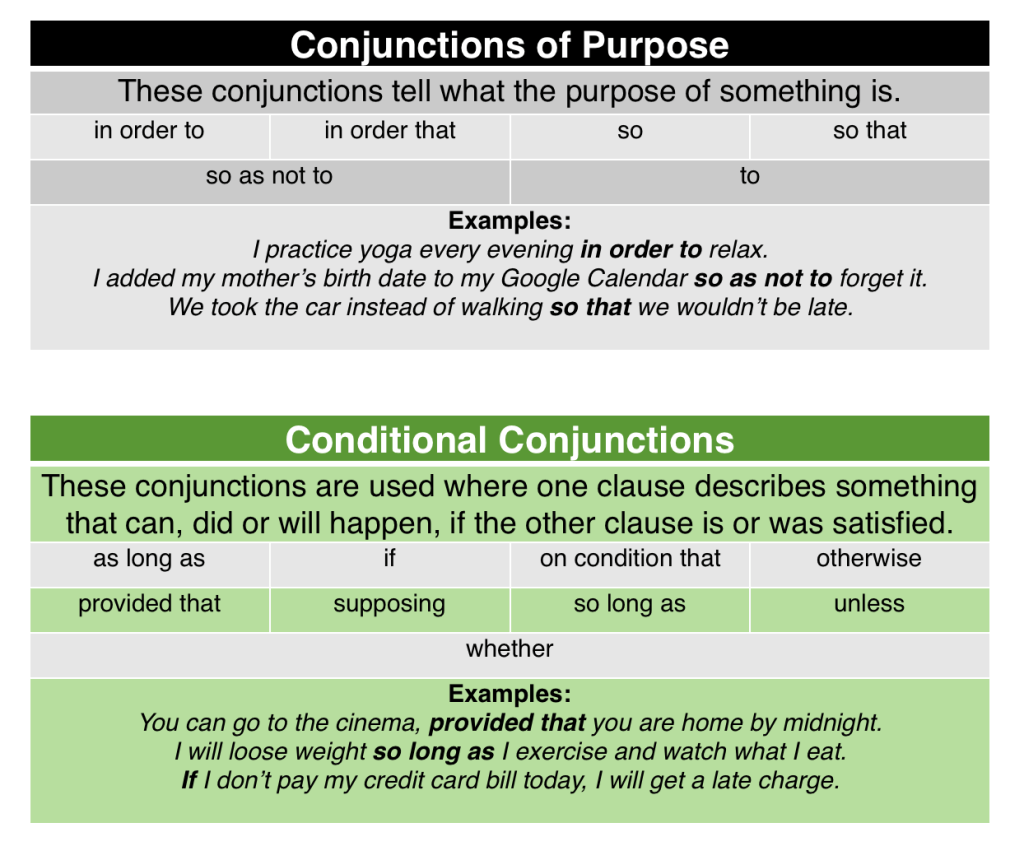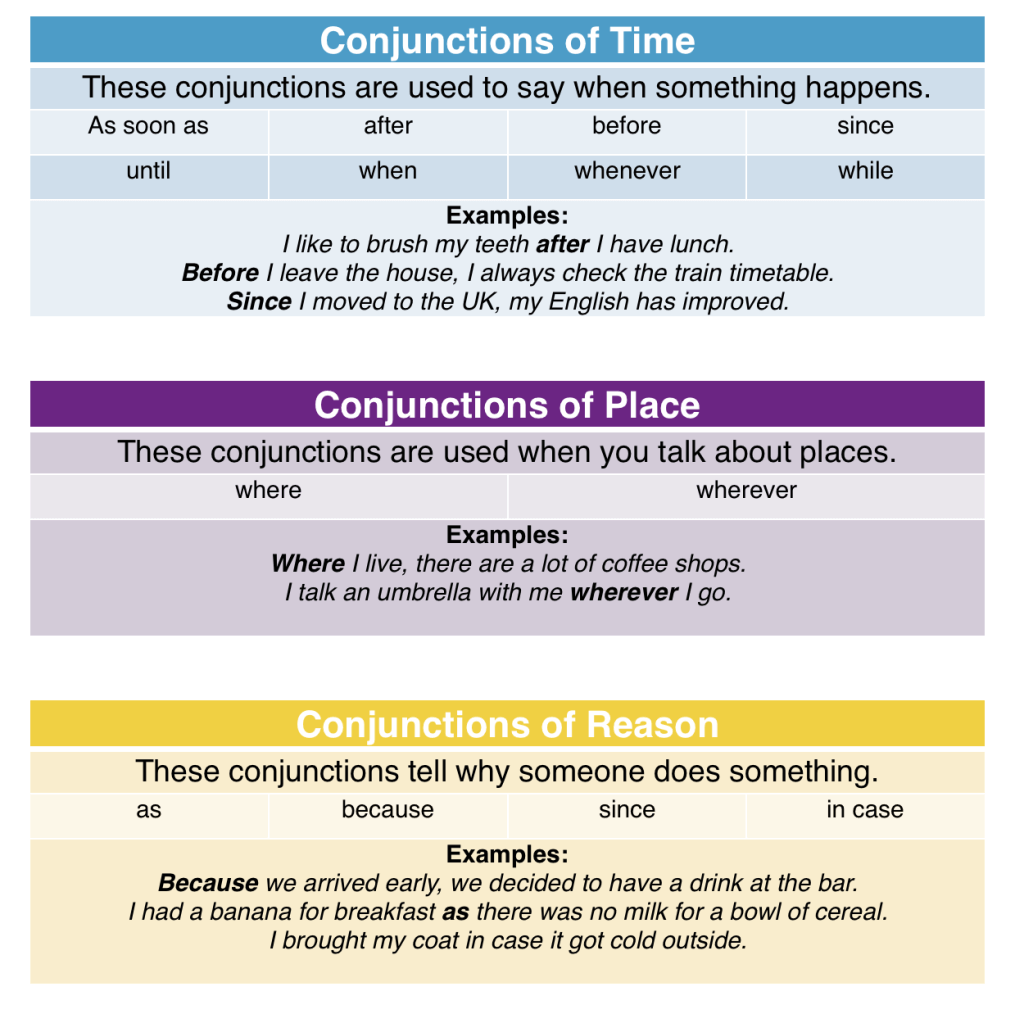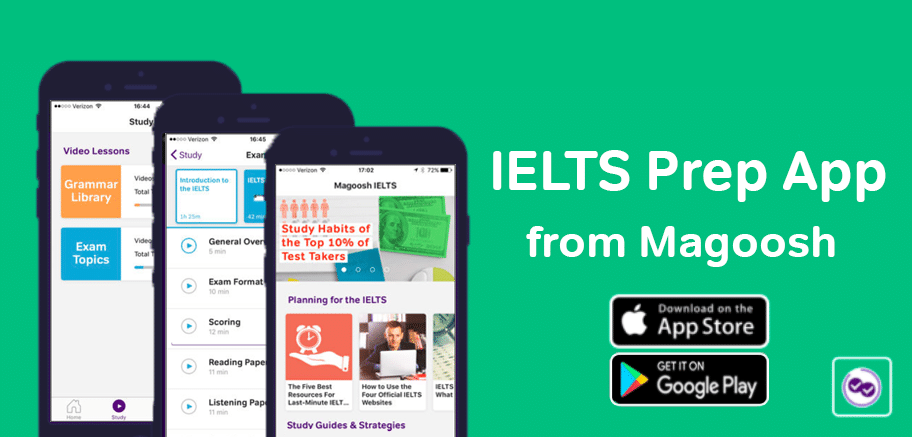In both the IELTS Writing and Speaking exams you will be assessed on your range of grammar and accuracy; this marking criteria actually makes up 25% of your overall score. Too often students focus only on fixing grammatical mistakes, but it is also important to use a variety of sentence structures (i.e. range) to get top marks. One of the easiest ways to increase your range is to transform your simple sentences into complex sentences using conjunctions. Not surprisingly, using conjunctions in IELTS also helps your coherence and cohesion – another 25% of the marking criteria. Let’s take a look at the basics and some examples.
What is a Simple Sentence?
A simple sentence has just one independent clause. The number of clauses in a sentence is equal to the number of finite verbs in it. (Note that to-infinitives and –ing forms are not finite verbs.)
Example: Government investment in the arts is a waste of money.
What are Complex Sentences?
A complex sentence contains an independent clause and at least one dependent clause. An independent clause can stand alone as a sentence and makes a complete thought and a dependent clause can not stand alone, even though it has a subject and a verb.
Example: Although I love art galleries (dependent clause), I believe government investment in the arts is a waste of money. (independent clause).
Use Conjunctions to Make Complex Sentences.
The IELTS examiner expects a candidate to use a variety of these structures in their writing and speaking. One way to transform your simple sentences into complex sentences is to use co-ordinating and subordinating conjunctions.
Conjunctions are words that link two parts of a sentence or separate phrases within a sentence together. Co-ordinating conjunctions, such as ‘and’, ‘but’, and ‘or’, are used to join two parts of a sentence that are grammatically equal. The two parts may be single words or clauses. Co-ordinating conjunctions always come between the words or clauses that they join.
Example: I like art galleries, but I don’t think they should be government funded.
Subordinating conjunctions are used to join a dependent clause to an independent clause. They are the essential ingredient in a complex sentence. Subordinating conjunctions usually come at the beginning of the subordinate clause. Below are some common subordinate conjunctions:
Types of Conjunctions

Incorporating conjunctions into your speaking and writing will help you speak more like a natural native English speaker AND get you higher marks on your IELTS exam.







Leave a Reply